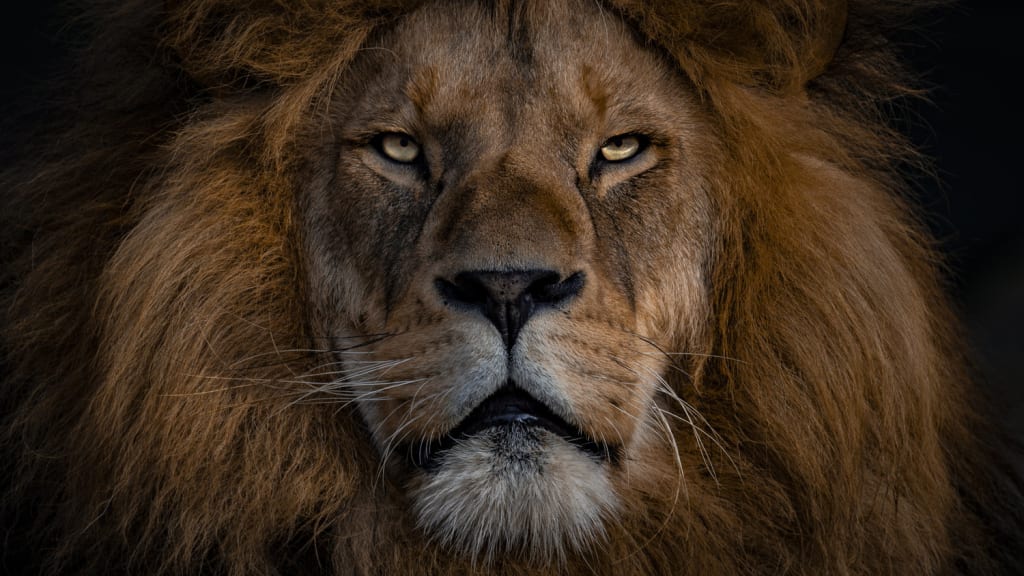Are you Human?
The Role of Human Expansion in the Destruction of Lion Populations

Human expansion has been a double-edged sword for wildlife, including lions. On one hand, it has provided new opportunities for research, conservation, and tourism. On the other hand, it has led to habitat loss, human-wildlife conflicts, and poaching for lion parts. This article aims to shed light on the extent and impact of human expansion on lion populations and what can be done toconserve these magnificent animals.
As we delve into the topic, we'll explore the causes and consequences of human expansion on lions, and take a closer look at the current conservation efforts aimed at saving these iconic creatures. We’ll also be incorporating a touch of humor, because who says saving the world can't be fun? So buckle up, grab a coffee (or a lion if you're a coffee lover), and let’s explore the role of human expansion in the destruction of lion populations.
Human Expansion and Habitat Loss
Human expansion refers to the growth of human populations, both in terms of numbers and geographical reach. This expansion has been driven by various factors, including technological advancements, increased food production, and improved medical care. However, this growth has also led to habitat loss for many other species, as natural habitats are cleared for human use.
Habitat loss occurs when natural habitats are destroyed, fragmented, or modified, making it difficult for wildlife to survive. This can happen when forests are cleared for agriculture, wetlands are drained for development, or grasslands are converted to urban areas. Habitat loss not only affects the plants and animals that live in these areas, but it also has far-reaching impacts on the ecosystem as a whole.
When habitats are destroyed, it disrupts food webs, reduces biodiversity, and can lead to the extinction of many species. For example, the destruction of tropical rainforests has resulted in the loss of countless plant and animal species, many of which were not even known to science. Additionally, habitat loss has also contributed to climate change, as forests play a crucial role in absorbing carbon dioxide from the atmosphere.
Moreover, human expansion and habitat loss have also had significant impacts on indigenous communities who rely on these natural habitats for their livelihoods, culture, and spiritual well-being. For example, the loss of wetlands can negatively impact fishing communities, and the destruction of forests can displace hunter-gatherer communities.
Human-Lion Conflicts
Human-lion conflicts refer to the incidents where lions and humans interact in a negative manner. These conflicts are often a result of human activities, such as expanding agricultural lands, invading lion habitats, and killing lions that attack livestock or humans.
The increasing human population and its related activities have led to a reduction in the natural habitats of lions, forcing them to move closer to human settlements in search of food. This increased proximity results in lions attacking livestock, which in turnleads to retaliatory killing by humans.
To mitigate these conflicts, conservationists and wildlife authorities are implementing various measures, such as educating communities on ways to protect their livestock, compensating farmers for livestock losses, and implementing community-based conservation programs. In some areas, lions are also being relocated to more remote areas to reduce the frequency of human-lion encounters.
It is essential to address the human-lion conflicts in a holistic manner, considering the social, economic, and environmental factors that contribute to these incidents. Without proper intervention, these conflicts will continue to escalate, leading to further decline in lion populations and loss of human lives.
Ultimately, it is crucial to strike a balance between human development and the protection of wildlife, to ensure the survival of lions and other wildlife species in the long term.
Poaching for Lion Parts
Poaching is the illegal hunting or capturing of wild animals, and it is a major issue when it comes to lions. The main reason for poaching lions is to obtain various parts of their bodies, such as their bones, skin, and teeth, which have a high value on the black market. The demand for these parts is fueled by traditional medicine practitioners and consumers in Asia, who believe that they have medicinal properties.
The loss of individual lions can also have a devastating impact on the social structure of lion prides and can lead to the decline of entire populations. The reduction in the number of lions in an area can also disrupt the balance of the ecosystem, affecting other species and the overall health of the ecosystem.
Conservation efforts have been established to help protect lions and other wildlife species from poaching. These efforts include the implementation of anti-poaching patrols, increasing awareness about the importance of conservation, and working with local communities to reduce demand for wildlife products. Additionally, international agreements, such as the Convention on International Trade in Endangered Species of Wild Fauna and Flora (CITES), have been established to regulate the trade of wildlife products, including lion parts.
Despite these efforts, poaching for lion parts continues to be a significant problem, with lions facing increasing threats from habitat loss, human-wildlife conflict, and disease. It is important to continue to work towards a future where lions and other wildlife species are protected and valued for their ecological and cultural importance.






Comments
Mirza Mirza is not accepting comments at the moment
Want to show your support? Send them a one-off tip.